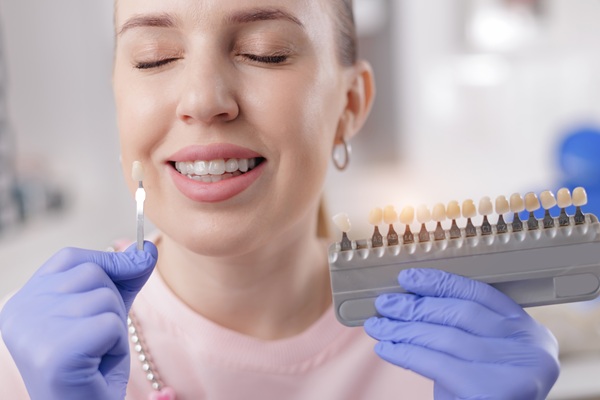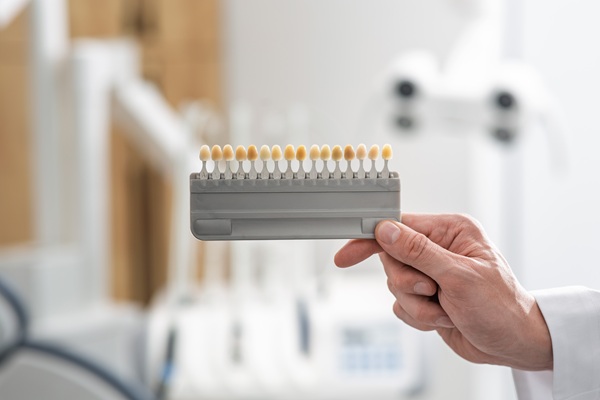What are the Steps of a Full Mouth Reconstruction?

Everyone wants great teeth, and a full mouth reconstruction can help those with severe dental issues achieve a brighter smile. Restoration of severely damaged, broken, decayed and worn teeth might seem like a big undertaking. However, when breaking it up step by step you may realize this life-changing dental makeover can be quite manageable.
Tooth wear, decay, loss and damage can occur for a plethora of reasons. Extended periods of poor dental hygiene, sports injuries, auto accidents, advanced age, severe gum disease and hereditary issues can all be the root cause for needing a full mouth reconstruction. Issues that can be remedied by a full mouth reconstruction include: severe decay, chipped teeth, broken teeth, infected tooth roots, large fillings, missing teeth, discoloration, weakened teeth and more.
Steps in a full mouth reconstruction
Step one
The first steps in any dental procedure, especially one as involved as full mouth reconstruction is a visual examination. The dentist will perform an evaluation of the gums, teeth and mouth tissue to determine any and all health or functionality issues. This evaluation involves a visual exam complete with X-ray imaging to check out deeper problems.
Teeth that need root canals may or may not be painful, and will only show up with the help of an X-ray. Jawbone abscesses and cavities between teeth will also need X-rays to determine the extent of the problem.
From this evaluation, the dentist will be able to recommend a treatment plan. A full mouth reconstruction is actually a few different tailored procedures that are meant to treat a list of specific issues. This means the dentist may recommend some procedures and leave out others that are unnecessary. Be sure to ask the dentist how long and how many procedures are needed so you know what to expect in the coming weeks.
Step two
At the first appointment, any teeth that need to be extracted will be taken out. Afterward, all dental procedures will proceed. A combination of the following dental procedures are then completed, depending on each specific case: dental implants, dentures, bridges, root canals, crown placement, veneers, whitening, among others.
Any tooth saving procedures will be completed first. This includes root canals, cavity fillings and abscess clearing. If there are no teeth left, the gums will be cleaned and prepared for the selected procedures. Dental implants will come next. If the patient opts for dentures, impressions will be taken of the mouth in order to make the custom-fitted appliances.
Step three
Recovery time is an essential component in proper healing. The dentist will give the patient specific instructions on how to care for newly treated teeth and prosthetic devices. To ensure the longevity of a full mouth reconstruction, dental hygiene is vital.
Ready for a brand new smile?
A full mouth reconstruction is a reason to smile. Call our office today to set up a consultation appointment to get you on your way to a brighter, complete smile.
Request an appointment here: https://www.emersondental.com or call Emerson Dental Associates at (201) 620-9998 for an appointment in our Emerson office.
Check out what others are saying about our services on Yelp: Read our Yelp reviews.
Recent Posts
Dental bonding is a minimally invasive way to enhance or repair the smile. Whether the issue is staining or a minor crack, bonding can be a quick and effective way to address it. Learning more about this common dental service can help you determine whether it is the best option for restoring your smile. Dental bonding…
Dental veneers are among the most popular cosmetic treatments in modern dentistry. However, there are several misconceptions about their purpose, durability, and required maintenance. If you are considering dental veneers to improve your smile, it can be helpful to understand the myths and facts about this cosmetic treatment.A common misconception is that dental veneers always…
A restorative dentist focuses on diagnosing and treating dental problems that affect the function and appearance of the teeth. While general dentistry emphasizes prevention and maintenance, a restorative dentist provides solutions for damaged, decayed, or missing teeth. These services are essential for patients seeking to regain comfort, oral function, and confidence in their smiles. Our…
Approximately 25 million adults in the United States experience obstructive sleep apnea. This sleep disorder can go unnoticed until the symptoms become debilitating. Not knowing about the disease is one of the main reasons people do not receive adequate treatment.Obstructive sleep apnea is a chronic sleep disorder that occurs when the upper airway becomes blocked…


